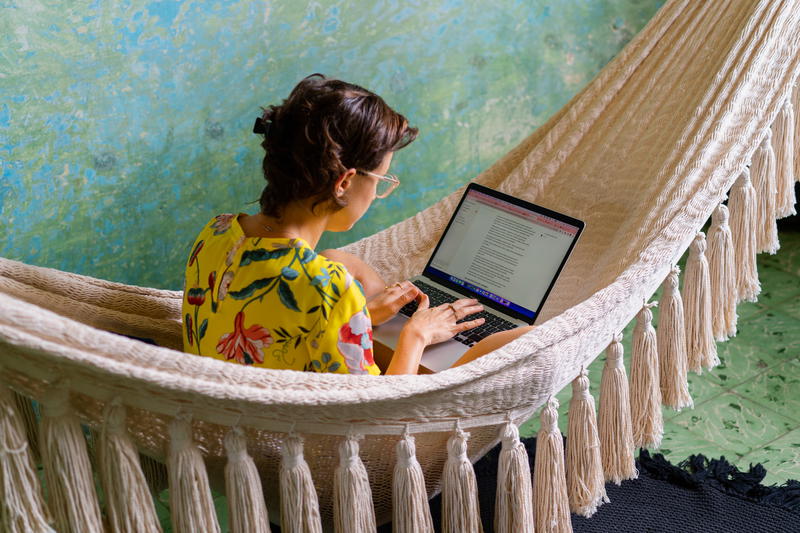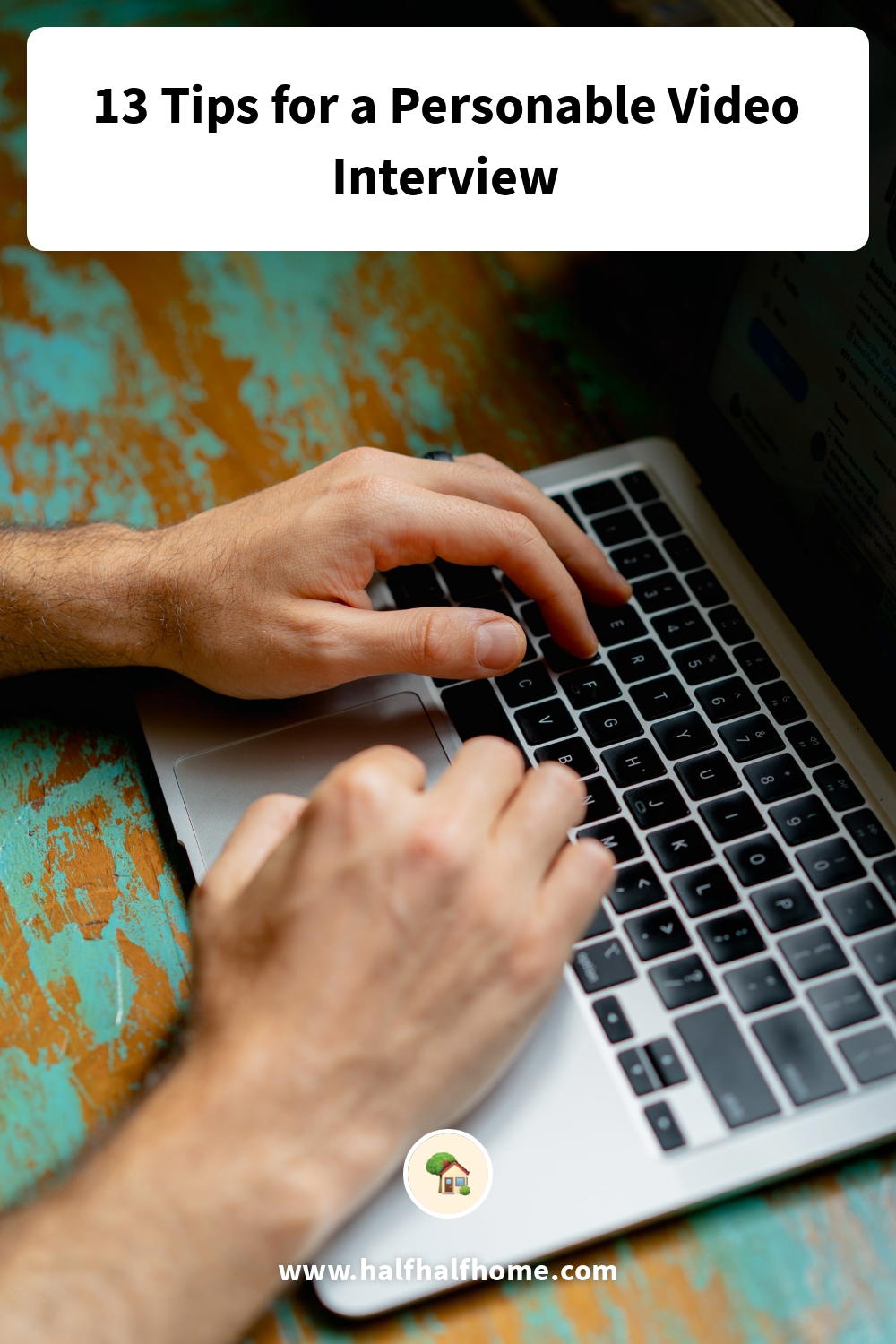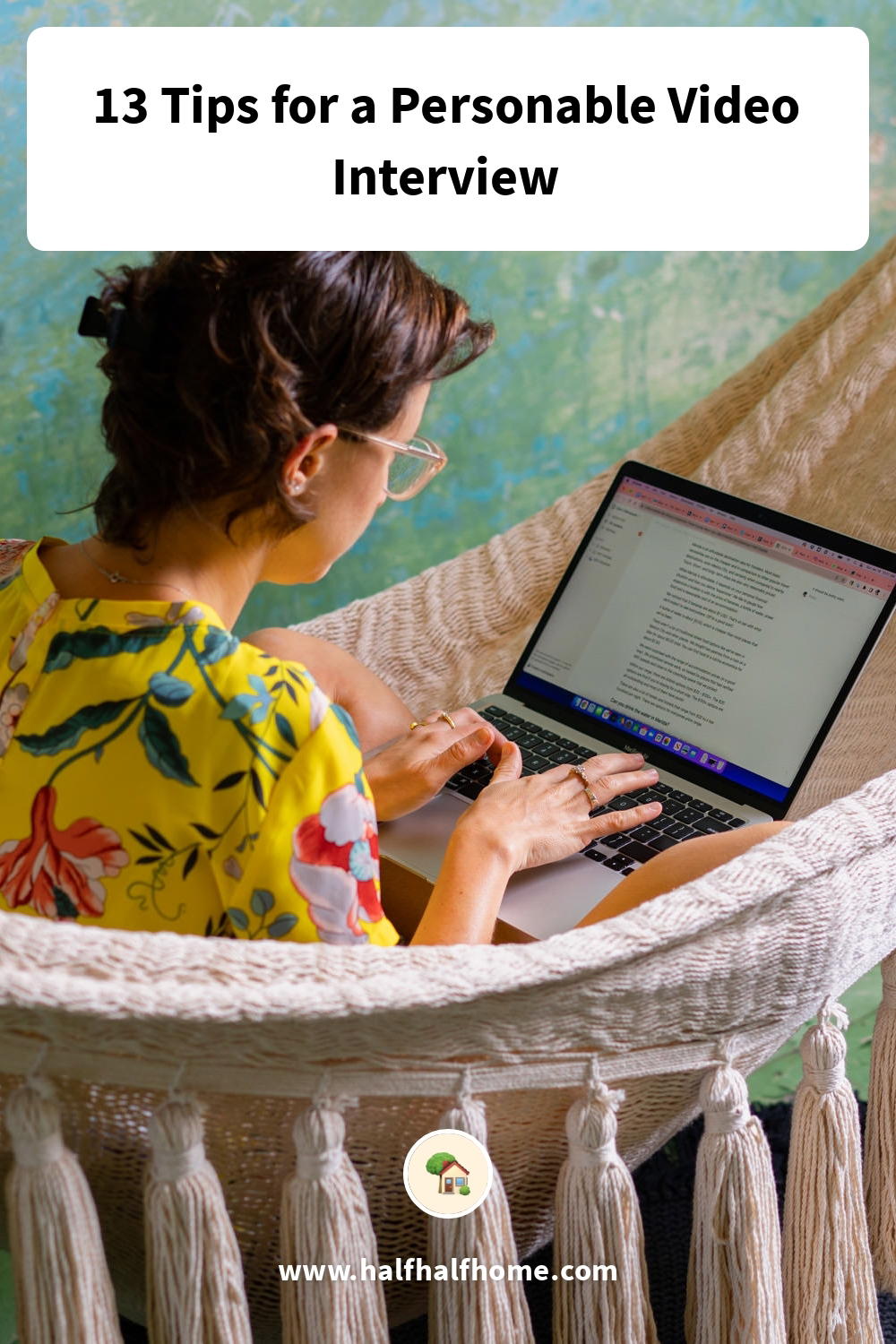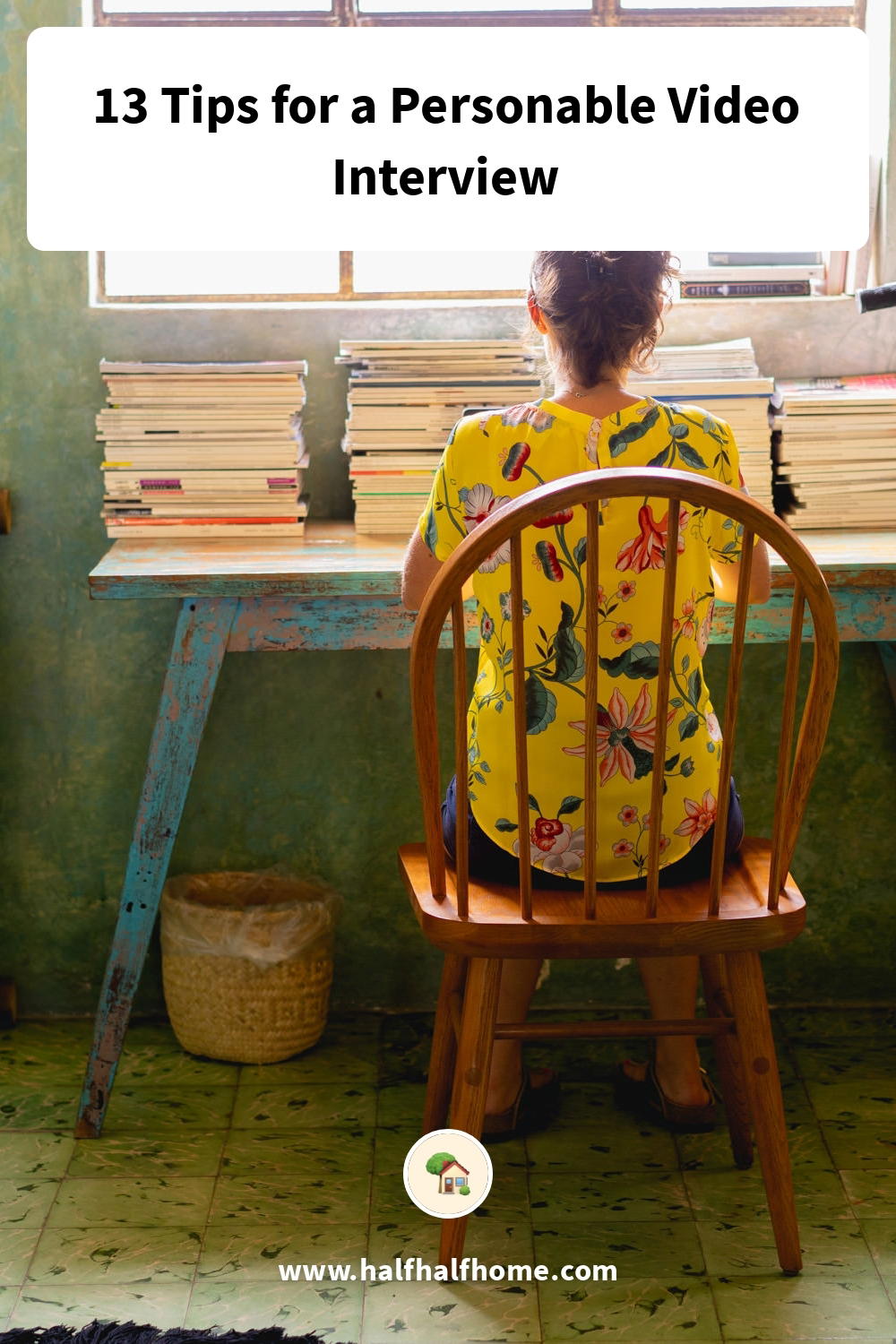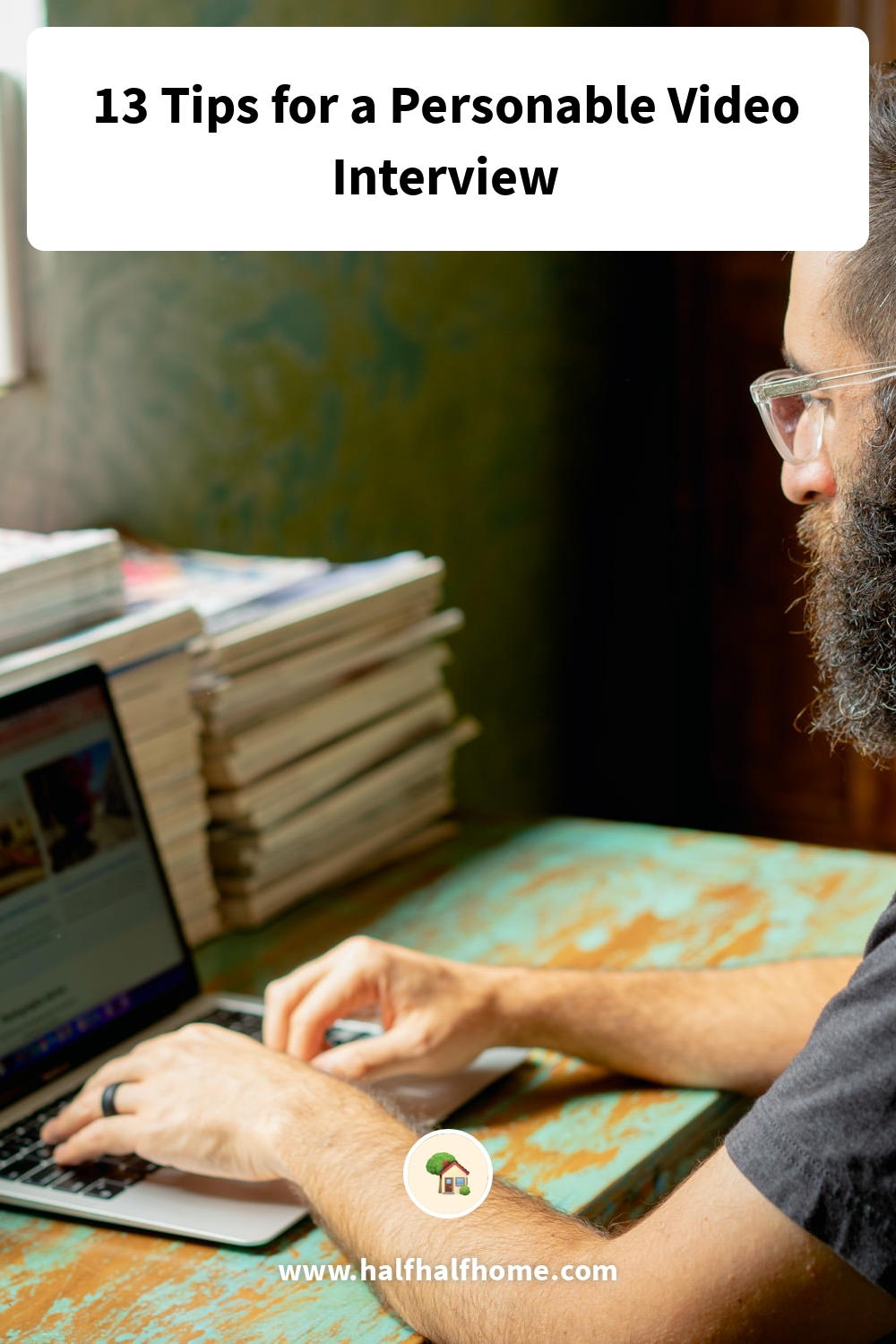13 Tips for a Personable Video Interview (Show Your Best Self)
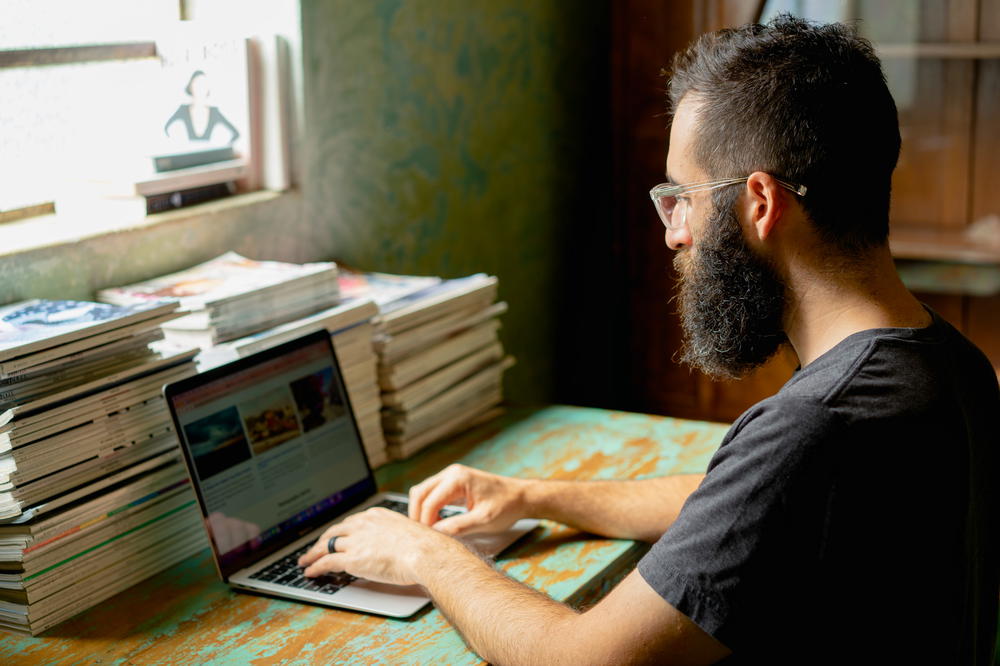
Learn all of the skills you need to excel in a video interview. In this article, you'll learn some of the personality traits and how to sell yourself in order to look professional and stand out!
This article may contain affiliate links. We earn a small commissions when you purchase via those links — and it's free for you. It's only us (Becca & Dan) working on this website, so we value your support! Read our privacy policy and learn more about us.
For some people, getting an interview is the easy part. Your resume speaks a lot about what you’ve accomplished.
When it comes to an interview, how do you stand out? How can you sell yourself without bragging or sounding arrogant?
In this article, we’ll break down some of the best ways to showcase your achievements and prove yourself during your job interview.
Dan and I are later in our careers, with more than a decade of experience in working in corporate, nonprofit and startup environments. Together, we’ve been through a lot of interviews at companies of all sizes. We’ve picked up quite a few tactics that have worked for us, and we want to share with you!
Quick takeaways for my video interview tips:
- Showcase your personality. To get hired, people want to get a sense if they can work with you effectively. Bad personality traits is usually a red flag that you want to avoid.
- Be your biggest fan. This is your opportunity to tastefully brag and share your accomplishments. Don’t undersell what you’ve worked hard on.
- Dress the part. Video interviews are face to face! Look professional because you are actually in a professional setting!
Be yourself
100% and without a doubt you should “be yourself.”
Avoid pretending to be anyone who you are not. It sounds simple, but if you start off being too personable (when in fact you’re more reserved), or too serious (when really, you’re typically tons more fun), your future colleagues will find out.
Being yourself makes the conversation with an interviewer flow more naturally and allows you to have a clear and open conversation during your interview, whether in-person or on video.
Consider this a perquisite for some, if not most, of the other ideas on this list of proving yourself during interviews.
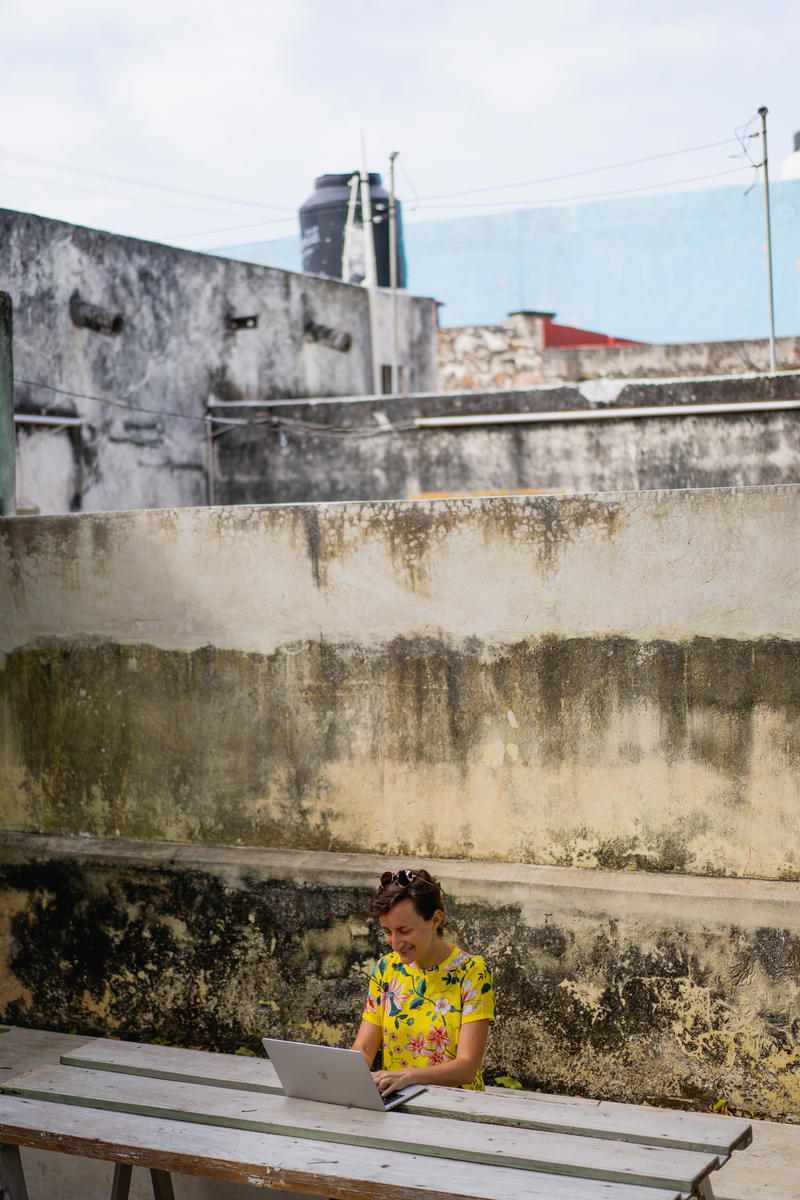
Be honest
Resumes and interviews are all about the art of embellishment. There’s a difference between making something “sound good” versus lying about something that you didn’t do.
This goes for everything from an inflated job title on your resume that does not match your LinkedIn, to taking credit for an entire project that was really a team effort.
To prove yourself, offer specifics during an interview. Show your value through the strategies you employed in the past. You can even comment on what you could’ve done better, to remain modest.
Remember: if you’re planning on leaving your current job, consider using some honesty, but never talk about your current employer negatively, as it sets a poor tone in your interview.
Smile and Be confident
If you already got your foot in the door with an interview, there was something confident about your resume.
Now, the interviewer (and likely a few other interviewers as well) will need confidence in you, that you’re the right person for the job.
According to the NIH, smiles make people attractive and trustworthy. Smiles and personality come across in a big way on a video interview. Use this to your advantage!
Talk about yourself highly. Don’t be afraid to mention your proudest career highlights. During an interview, the recruiter or interviewers are spending their time talking to you because they want to hear why you’re the best.
Show why you rise above the competition with your confidence, and avoid any type of self-deprecation.

Make eye contact
Eye contact shows confidence, and any interviewer wants to see confidence in the person they are interviewing for an important job.
Genuine eye contact is also a business skill that will prove worthy when you’re meeting with clients, your team, your manager or the president of a company.
Focus on keeping eye contact in a video interview by moving the interviewer’s Zoom window as close to your laptop’s camera as possible. This helps me to confirm that by looking at my interviewer, as close as possible to the little black dot of a camera, it will look like I am speaking directly to them.
If your interview is in person, remember to stay focused by making eye contact, especially when being asked a question and giving an answer.
If you want to get ahead of the questions someone might ask you, consider uploading your resume to PDF.ai. You’ll get an AI generated list of questions someone might ask you about your professional experience. Neat!
Avoid touching your face and your hair
Many people touch their face and hair when they get nervous. The bright side of an interview is that you’ll realize when you touch your face and hair or adjust your glasses, because you’ll be looking at yourself. (That’s also nerve-racking!)
The day before your interview, take a half-hour to mindfully practice touching your face and hair less. If you like wearing your hair ‘down,’ reconsider if this will mean you’ll be fidgeting with your hair a lot. It can be distracting to the interviewer.
I always wear my hair pulled back with clips or hair ties, and I suggest this for women or for guys with long hair. I have pretty bad habits of fidgeting with my hair, like a nervous habit. With my hair pulled back, I don’t touch it at all when interviewing on video.
Dress the part
Things have gotten pretty casual since everyone has been working from home, right?
Sometimes I’ll take meetings in a workout tank top and have my hair piled on top of my head like I just got back from a run or bike ride… oops! I’ll forget my own advice that dressing up a little bit is one of the best productivity tips for remote work.
For interviews, put on your absolute best face and Zoom shirt. If you are a guy, a collar is a good idea, or a polo, in summer months. For women, I recommend a blouse with some sort of collar, to show that it’s dressier than a regular top or tee.
For women as well, I recommend one piece of statement jewelry, no matter what kind of role you’re interviewing for. This can be earrings, but a necklace is really the best. It adds a dab of shine, or something interesting and memorable.
In the fall and winter, a nice touch on top of a blouse is a scarf, like this one from Bluffworks.
Use professional vocabulary
If you feel like you don’t currently have a professional vocabulary, take some time when you’re in meetings with senior leadership or colleagues to pick up on the language they use.
I’m serious: take notes! Keep a list of great words and phrases to use, whether they’re popular in tech, for example, or in your industry. Not taking is one of the general tips that I mention in my favorite remote interview tips.
My other tip is to mirror the vocabulary use of your interviewer. If they’re talking about ‘unit economics and spend,’ or ‘project management overarching strategy’ (just as examples), use the words they want to hear, in your responses to questions.
Ask about acronyms you hear for the first time during an interview. I was in an interview recently that used an acronym I had never heard of before! This acronym was “GP.” I asked what it was, before it was used too many times, and learned from the interviewer that it stood for “Gross Profit,” or, one of the more important ways this company measures success.
Prepare and practice your presentation
If you have a formal presentation, make sure to run through it a few times to learn how long it will take to go through it. Practicing your presentation also gives you a chance to catch errors and make adjustments.
Reach out to a friend or family member in your industry and walk through your presentation with them. Listen to their feedback and make any necessary adjustments. This will help you to stand out and look polished.
It’s also helpful to time yourself. If you know that you’ve been sent a calendar invitation for a “45-minute Final Presentation with Company ABC,” you can assume you have 30 minutes to present and a 15-minute Q&A session, even if the recruiter did not make a note that this was the structure. You can make a smart assumption.
For a final presentation on a job interview earlier this year, I used the platform Pitch.io. I have no affiliation with this company, but I want to recommend it.
Basically, there is a trove of awesome and aesthetically-pleasing templates you can use for a pitch deck or presentation on an interview. I loved using Pitch.io for a final presentation, or two.
While I didn’t get the job, I was confident that I proved my worth through a presentation I was proud of!

Be polite
After your interviews, make sure to leave a thoughtful thank-you note recapping something you learned and something that you are excited about.
Even if the interview did not go as planned, send a thank-you note to show appreciation of the recruiter’s time.
There was this one time I had a phone screen with a company that told me the job I found on a remote job board was no longer remote, but rather, had been moved to in-office in Austin. On the phone, the recruiter asked if I was ready to relocate and I honestly said no, I’m not interested in doing that!
I sent a thank-you note immediately afterward to the recruiter, to thank her for being straightforward and also brief with me. Soon, she sent me a connection request on LinkedIn so that we could “keep in touch.” There was a positive outcome to being polite!
Highlight your strengths
To prove your worth in an interview, talk about why you’re an expert at what you’ve done in the past.
If you’ve done something in the past, chances are, you were the best person to do it.
Why were you so great at this thing? What was the outcome? Did you get promoted after this huge undertaking? Did you come up with new learnings that you applied in future projects?
One skill to be good at during interviews is naming those strengths and talking about how they relate to the job at hand. An example could be picking up a few of the expectations or requirements in the job description, and mentioning to the recruiter that you got excited about this job because of your past experience and successes in your area of expertise.
Highlight your weaknesses
There is no shame in being up front about the things that you are less good at. And, learning this about yourself provides a clear roadmap for your manager to help work these things out with you.
For example, I probably could have saved myself time in an interview several months ago by being more direct in talking about my mathematic, statistical and analytic skills when it comes to Excel.
I might have brushed the questions aside and gave vague answers, and when the time came for a practical take-home exam that was all about Excel equations and management of problems, I needed to seek help and knew that this was not the job for me. It made me nervous.
Maybe you have had a similar situation! There are ways to find out early on if the job doesn’t match you, rather than you not matching the job.
Learn from past interviews
Practice is really important. The more interviews you take, the easier it is to answer some of the common questions time after time.
I have had so many interviews that I can rattle off the “tell me about yourself” part of the phone screen or first round interview like clockwork.
I’ve gotten the hang of what my interviewer wants to hear, and how to relate it to the job for which I’m being interviewed.
I have also taken note of what interviewers think are my most important career projects. More times than not, they want me to dive deeper and explain complex past projects that I’m happy to elaborate on.
Come prepared with questions of your own
One zinger I like to use in interviews is to get the interviewer talking about his or her experience at the organization.
Remember: via human nature, people love talking about themselves, and might even consider that something went better than it really did, if they recall that they wound up talking about positive things.
One of my favorite things to ask my interviewer is what are they excited for in terms of developments happening at the company. This usually gets them started on a conversation about quarterly goals, an organizational rebrand, plans for expansion and things like this! It ends the conversation on a very positive note.
My other favorite question is to ask about company culture, and I frame it positively. I ask what are their favorite things about the company’s culture, and which aspects of it keep employees around?
Keep in mind what the positive answers to these questions were, as you aim to minimize anxiety about the new job when you start.
In terms of more technical questions, you can feel free to ask again about the team involved with the role for which you’re interviewing, which position the role reports to and how you can expect growth to be treated and framed in the first six months to a year.
